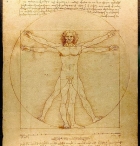Progression & Assessment
Progression and Assessment (Key Stage 3): Progression simply means ‘getting better’. History teachers need models of what progression in history looks like but many contrasting models exist and lively debates continue. All history teachers therefore need to know enough to understand those debates and join them. History teachers and history education researchers have traditions of defining and testing goals for students, debating how far these should relate to substantive knowledge and/or disciplinary thinking, researching typical routes pupils take towards them and working out optimal paths to help them get there more securely. Read more
-

Progression & Assessment without Levels - Guide
Multipage ArticleClick to view -

Progression - more than 'could do better'?
Multipage ArticleClick to view

